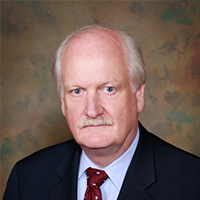Lexington DUI-DWI Lawyer, Texas
Sponsored Law Firm
-
 x
x

Click For More Info:
-
Stephanie Alvarado Attorney at Law
100 N Central Expy Suite 805 Richardson, TX 75080» view mapCriminal Defense Law Fighting Against Unjust Prosecution
Attorney Stephanie Alvarado is there for her clients when help is needed right away. Helping people charged with crimes in Texas for over 20 years.
800-988-5471
Clovis Wayne Martin
✓ VERIFIEDMy Interest in criminal law is rooted in one thing -- my desire to help people. I grew up in Midland, Texas, where I received a bachelor's degree i... (more)
Mia Alexia
✓ VERIFIEDMia Alexia is a practicing lawyer in the state of Texas.
Novert Morales
In 1996, Attorney Novert Morales founded Morales Law Office, Attorneys at Law, PLLC., a private practice dedicated to representing individuals and fa... (more)
Steven Ashley Gibbins
✓ VERIFIEDBorn and educated in Austin, Texas. Graduated from University of Texas undergraduate school in 1979 and from its law school in 1982. Licensed by the T... (more)
Edwin Gerald Morris
✓ VERIFIEDAustin, Texas based criminal defense lawyer, E. G. "Gerry" Morris, has since 1977 represented individuals accused of state and federal crimes, both in... (more)
FREE CONSULTATION
CONTACTFREE CONSULTATION
CONTACTFREE CONSULTATION
CONTACTWilliam M Hines
FREE CONSULTATION
CONTACTFREE CONSULTATION
CONTACT Stephanie Alvarado Richardson, TX
Stephanie Alvarado Richardson, TX Practice AreasExpertise
Practice AreasExpertise





